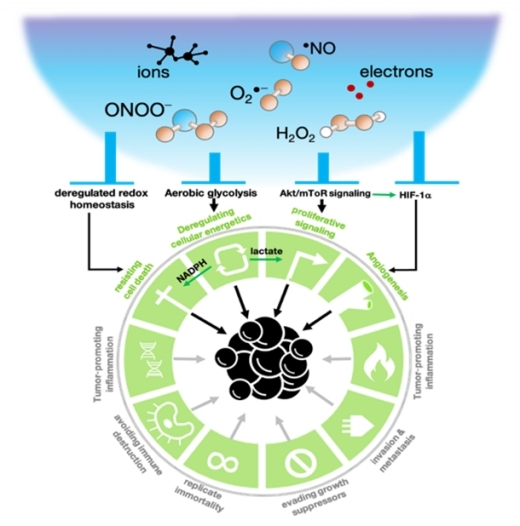Hailan Chen

Research Associate Professor
PHONE: 757-683-7039
EMAIL: h1chen@odu.edu
ADDRESS: IRP 2, 4211 Monarch Way, Norfolk, VA, 23508
Education
- Postdoctoral Research fellow: Department of Biochemistry, University of Liverpool, Liverpool, UK. 1996 - 2000.
- PhD: Department of Biochemistry, Liverpool University, UK. 1995
- M.S: Department of Pharmacology, Beijing Medical University, P. R. China. 1988
- Doctor of Medicine: Medical School, Hubei University of Science and Technology, P. R. China. 1982
Lab Members
Fanying Li, Lab manager
JiaJun Jiang, Ph.D. student. Joint supervision with Dr. C.H. Chen (ECE) and Dr. M.G. Kong (CBE and ECE)
Research Description
My research interest is primarily in cellular and molecular targets of physical plasma and how these targets may be tested in clinically relevant models to identify new ways to improve the prognosis of patients suffering with infection, cancer, or organ injury. A key motivation is that mammalian cells produce diverse reactive oxygen species (ROS) and ions, products of aerobic respiration, to regulate cell proliferation, differentiation, migration, and other signaling events, suggesting that cell functions may be therapeutically manipulated with exogenous ROS and ions. Interestingly, ROS, ions, and other reactive molecules are also generated by physical plasma, such as cold atmospheric plasma (CAP) formed near room temperature in open air. This remarkable similarity in products between mammalian cells and CAP opens up an exciting avenue to novel intervention strategies. Of note, promising results are observed from clinical trials testing efficacy and safety of CAP treatment for chronic wounds or tumors. Given these and in close collaboration with engineers and physicists, I focus on novel targets of CAP that may improve current treatments of cancer, infection, and injured tissues.

In the area of cancer treatment, our laboratory has a long-term interest in cancer cell survival pathways and their multiple roles in promoting cancer drug resistance. One such pathway is PI3K/Akt/mTOR signaling and their crosstalks with other players, such as transforming growth factor-b (TGF-b) and smad (Massague, Nat. Rev. Mol. Cell Biol. 2012). By leveraging my experience in TGF-b/smad signaling (Yang et al. Circulation Res, 2005), our team developed a CAP-based strategy to target Akt/mTOR/HIF-1a signaling as well as glycolytic metabolism and deregulated redox homeostasis, all significant cancer cell survival pathways. This hypothesis is confirmed with in vitro and in vivo models of chronic myeloid leukemia and reveals that an exceptionally low-dose CAP both blocks three major routes to therapy resistance and induces high-rate apoptotic death in therapy resistant cancer cells (Guo et al, PNAS, 2021).
With the above advance and given the role of the TGF-b /smad signaling in immune cells (Yang et al. Trends Immunol. 2010), we became interested in whether CAP may be used to beneficially target autoimmune disorders. Using a mouse model of vitiligo, we find that CAP treatment suppresses T-cell attack on melanocytes and promotes repigmentation of areas of vitiligo lesion. Interestingly, a gel prepared with CAP activation is equally effective against T-cell attack and for skin repigmentation. The translation potential of plasma-activated gel led to a collaborative effort with clinical dermatologists to test it on patients with focal vitiligo and this clinical study shows promising efficacy and safety data (Zhai et al. J. Invest. Dermatol. 2021).
Antimicrobial properties of CAP are well documented for planktonic bacteria, however its activity in microbes protected inside a biofilm matrix is usually modest. Working with engineers to identify novel rection chemistry that can break down the biofilm matrix, we recently show that the effluent of a specially designed CAP can break down biofilm matrix and kill bacteria within at the distal end of a 2.2-meter endoscope (Bhatt et al. Ga Gastrointestinal Endoscopy 2019,). Similarly, we find that water appropriately pretreated with CAP is capable of disarming the ability of SARS-CoV-2 to bind to mammalian cells, thus offering an antivirus strategy to help mitigate environmental transmission of the virus (Guo et al. Chem. Eng. J. 2021). Currently, we are exploring the in vivo antimicrobial and antibiofilm activity of CAP for biofilm-infected wounds. Additionally, we are exploring novel signaling pathways that may be targeted by CAP for tissue regeneration.
News
Most relevant publications
- Guo, B., Pomicter, A. D., Li, F., Bhatt, S., Chen, C., Huang, C., Deininger, M. W. Kong, M. G. and Chen H.-C. 2021. Trident cold atmospheric plasma blocks three cancer survival pathways to overcome therapy resistance. Proc. Natl. Acad. Sci, USA, 118, e2107220118
- Zhai, S., Xu, M., Li, Q., Guo, Q., Guo, K., Chen, H. L., Kong, M. G. & Xia, Y. 2021. Successful treatment of vitiligo with cold atmospheric plasma-activated hydrogel. J. Investigative Dermatology 141, 2710-2719.e6
- Guo, L., Yao, Z., Yang, L., Zhang, H., Qi, Y., Guo, L., Xi, W., Liu, D. X., Zhang, L., Cheng, Y., Wang, X, Rong. M., Chen, H., Kong, M. G. 2021. Plasma-activated water: An alternative disinfectant for S protein inactivation to prevent SARS-CoV-2 infection. Chem. Eng. J. 421: 127742
- Bhatt, S., Mehta, P., Chen, C., Schneider, C., White, L., Chen, H. L. & Kong MG. 2019. Efficacy of low-temperature plasma activated gas disinfection against biofilm on contaminated GI endoscope channels. Gastrointestinal Endoscopy 89, 105 - 114.
- Yang, X. D., Long, L, Southwood, M., Rudarakanchana, N., Upton, P. D., Jeffery, T. A., Atkinson, C., Chen, H. L., Trembath, R. C. & Morrell, W. N. 2005. Dysfunctional smad signalling contributes to abnormal smooth muscle cell proliferation in familial pulmonary arterial hypertension. Circulation Res 96, 1053-1063
Awards and Honors
- Overseas Research Scholarship Award, UK Secretary of the State of Education, 1991
- British Heart Foundational Research Fellowship, British Heart Foundation, 2000.


